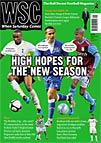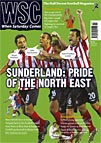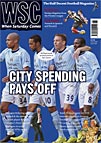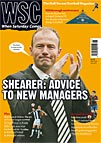 Dynamo Kiev's Soviet Supreme League triumph in 1975 put the club on the way to being the most successful team in league history. Saul Pope reports
Dynamo Kiev's Soviet Supreme League triumph in 1975 put the club on the way to being the most successful team in league history. Saul Pope reports
The long-term significance
Dynamo Kiev were midway through a run that would ultimately see them win more Soviet league titles than any other side. Spartak Moscow picked up six titles through the Fifties and Sixties but Dynamo accumulated eight through the Seventies and Eighties, leaving them with a total of 13 titles to Spartak’s 12. A large part of Dynamo’s success could be attributed to manager Valeriy Lobanovsky, a pioneer of football science who used physical and psychological testing to evaluate players’ potential and blended the total football of the era’s Dutch sides with tactical discipline. As well as winning the league in 1975, Lobanovsky’s Dynamo won the Cup-Winners Cup. They would repeat this feat in 1986 before Lobanovsky led the USSR to the Euro 88 finals and Dynamo to the Champions League semi-final in 1999. The English FA’s forthcoming National Football Centre is partly based on the training centre he built for his Dynamo side in the Seventies.


